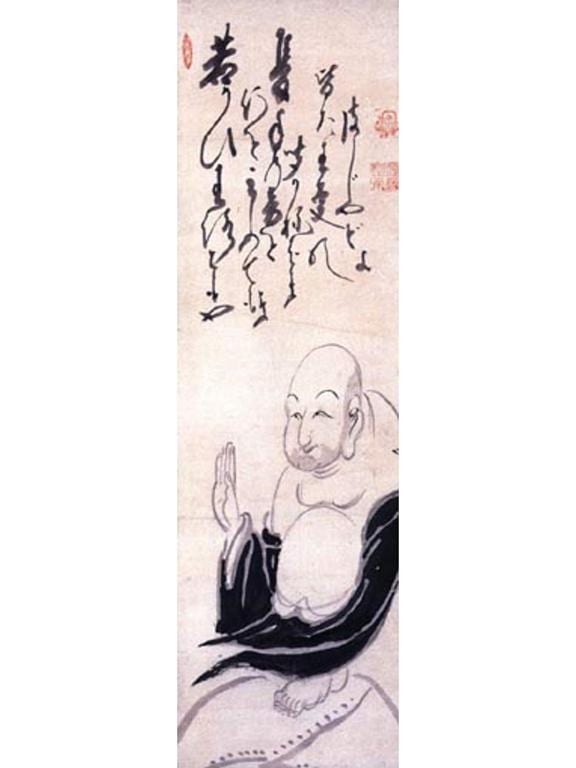ZEN IN FIVE MINUTES
Okay Zen in Six Minutes & Thirty-three seconds
James Ishmael Ford
The poet and traveler on the intimate way Jane Hirschfield summarizes Zen with three principles. Everything is connected. Everything changes. Pay attention.
The word Zen actually means meditation. That’s where we get the pay attention part. Meditation is a word that can mean almost anything that you can do with you head. Zen’s meditation is sometimes called “shikantaza,” a Japanese word that translates as “just sitting.”
Zen meditation is most commonly practiced sitting, either on a small pillow on the ground or in a chair. Most Zen practitioners try to sit, sit is a popular word for Zen meditation, for at least half an hour a day. Many sit an hour or more a day. Zen practitioners are also encouraged to attend meditation retreats as often as is reasonable given life’s circumstances. These range from half a day to three days to five days and seven days. Also, there is another type of retreat that lasts ninety or one hundred days.
Other things happen during a retreat, but most of all it is sitting meditation.
Now many teachers of the Zen way say that that half hour a day, more or less, is the key to the practice.
The word Zen implies some other things, beyond meditation. Even as Zen meditation is an invitation into intimacy with the world, that invitation is not dependent on the formal meditation time or posture. By simply bringing ourselves to the present moment, Zen invites ever deeper encounters. These encounters shake loose our certainties about ourselves and the world.
Zen people like that bumper sticker, “question authority.” But the inside joke is how the most dangerous authority lies between our ears. Zen’s way calls for great doubt, something near unique among spiritual traditions. Zen is a deep questioning. For many Zen teachers that other bumper sticker wisdom “Don’t believe everything you think,” should actually read don’t believe anything you think. All knowledge is provisional. Our senses mislead us. And our brains are never reliable.
Zen becomes an invitation into a place of not knowing. From one angle a great Zen teacher described it as achieving a beginner’s mind. Probably not a lot different than Jesus’ call to become like little children. Another Zen sage said of this state that not knowing is most intimate.
This intimacy opens to a great awakening. Zen teaches how if we open our hearts and minds wonders await.
This way also calls for great energy. That is, it invites us into a regular and disciplined practice. One that includes meditation, as I mentioned, but also calls us to a consciously harmonious life with both our inner worlds and the world all around us.
Zen arises as a distinctive way in early Medieval China. One wag suggested that Indian Buddhism arrived in China, had an affair with the Chinese indigenous religion Daoism, and their love child is Zen. On the one hand it is clearly a school within Buddhism devoted to meditation. But Zen’s wisdom isn’t bound by any school or religion.
With that we return to Jane Hirschfield’s two other principles. Everything is connected and everything changes.
Part of the wisdom of the Zen way is how we exist for a moment within the flow of things. That moment is precious and lovely. But passing as the morning dew.
And, here’s another deal from Zen, time itself is something of a construct of the human mind. So, while it is true within this world we are born and will die as all things do, there is another sense in which all things that have come into being are forever. Now the boundaries we experience are useful and often really important. But they are constructs. In fact, everything is wildly open, unlimited. And, it isn’t a philosophical thing, according to Zen’s teachings. it is something we can touch with our human minds. Our human hearts.
As we see everything connecting, and everything passing, we come to a place some call the Wise Heart. The wise heart is a Western term, it occurs about ten times in the Bible. But it works as a pretty good placeholder for the awakened wisdom of the Zen way.
Zen also has a tradition of spiritual direction. Zen teachers are most often Buddhist monks, nuns, or priests. They can be lay people, as well. And in the West more and more Zen teachers are lay people, householders. And sometimes they’re not Buddhists. Christians and Jews and other spiritually fluid people find themselves apprenticed to Zen masters, and sometimes much to their and other people’s surprise, become masters of the way themselves.
In short Zen is one surprise after another.













